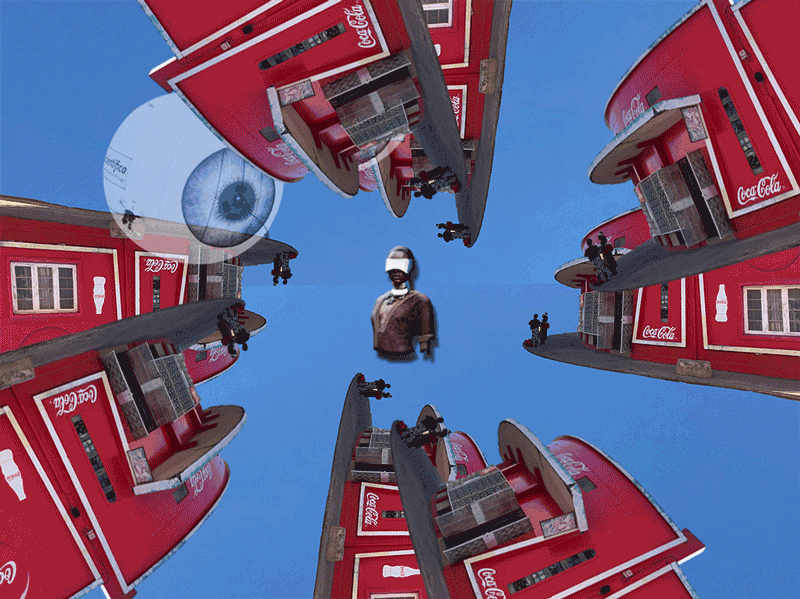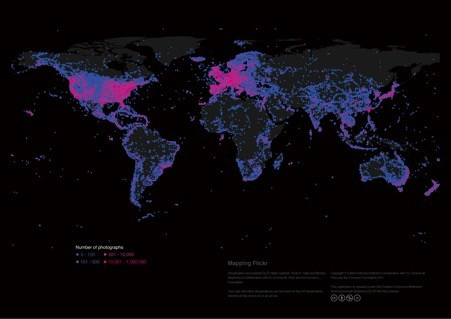Call No. 4 – Ghosted
by Tegan Bristow
______________________________________
Call release: February 21, 2018
Jury selection: March 26–31, 2018
Web Residencies: April 9 – May 6, 2018
Residents: Dananayi Muwanigwa (Harare/Zimbabwe), Léa Porré (London/UK), Sahej Rahal (Mumbai/India), Juan Covelli (Bogotá/Colombia)
______________________________________
Through colonialism and apartheid, many African cultures were denied participation in the progress of media technologies. Scientific colonialism ensured access to natural resources (the fuel modernism) and the labelling of African cultures as stagnant and stuck in time. These cultures where essentially »ghosted» in time. On this, Delinda Collier states:
»In the case of colonialism in Africa, the ghosting of indigenous media practices was not an unfortunate consequence of colonial rule, as most scholars of the time understood it, but rather an intentional divestment of indigenous populations of power by participation.
The now common knowledge that Europe created the notion of Africa as practicing unchanging traditions – amounted to the limited definition of »medium« in Africa to that of objects and performances as emblems of superstitious practices.«
Collier uses a part of this argument to identify how in contemporary cultural practices, the histories of technological media are in fact colonial histories, which start to include a power of participation by African’s only much much later. Collier further highlights that »medium« in this frame takes on a slightly altered approach.
My focus in this call, however, expands on the first line of thinking – fast forwarded to 2018.
This is a call for unpacking the place and role of internet culture and the globalized information economy in line with neocolonialism:
What are the consequences of Western technologies on non-Western cultures?
What are scientific or technological colonialisms in 2018?
The term the »digital divide« in the 1990s was about the divide between how nations either did or did not have access to internet connectivity or digital hardware. In 2018 the »digital divide« is no longer about this; it is now about the ability to attain meaningful use from the internet and a globalized information society.
Neil Selwyn states, »[Meaningful] use should be considered to be useful, fruitful, significant and have relevance to the individual,« (Neil Selwyn, 2014) focusing on what an individual can gain not only economically, but also from social and cultural meaning (Ibid.) in this digitized world.
If we unpack these terms: economic capital is not only about access to resources, but furthermore – patterns of use, as economic divisions lead to particular patterns of use when accessing content online. In extension when we explore the role of social or cultural capital, we start seeing how people are influenced by a techno-culture socialization.
This techno-culture socialization is understood (Ibid.) to be linked to obligations and connections of particular networks and the informational power dynamic that exist between cultures, languages, and systems – and content they hold over others
World Flicker Map (last accessed 2018), shows a predominance of North American and European content on this particular network. How many other networks are dominated by content from these locations?
From a nonwestern perspective, engaging meaningful use means engaging and growing networks that don’t emanate from the West, but rather support content and narratives that focus on Southern social and cultural capital.
There is an increasing need in nonwestern cultures for internet use to be intertwined with the importance of self-determination and decolonial thinking. A position evolving from the African continent – but true for many cultures and their development in the presence as non-western knowledges. I therefore ask:
Where are the transformational archives of the South; bringing ghosted cultures to the fore?
Where are the break-up letters for the Western digital world?
The call is addressed to artists, hackers, visual and audio makers, subaltern archivists and southern healers. This call is for creative and artistic practices on non-Western explorations of cultural capital – or the effects of Western cultural capital – via personal or community archives, web performances, web sculpture and various forms of Net art and online interactions that explore meaningful transformation, self-determination, and decolonization, that may include break-up letters.
Personal or community archives, web performances, web sculpture and various forms of Net art and online interactions. All types of work are accepted: websites, videos, writing, 3-D objects, music, or applications. If specific software or environments are needed, please contact us in advance.
Residents Call No. 4
-
Runako: »Ghosted« African Aesthetics To the Fore And Into the Future
Dananayi Muwanigwa
Harare/Zimbabwe -
Oasis or Mirage?
Léa Porré
London/United Kingdom -
Dissonant Mythologies
Sahej Rahal
Mumbai/India -
Speculating the Fragmented Copy
Juan Covelli
Bogotá/Colombia
Dr. Tegan Bristow is a Johannesburg based South African artist and developer of interactive digital installations; Senior Lecturer at the University of the Witwatersrand and Director of the Fak’ugesi African Digital Innovation Festival since 2016. In 2017 Bristow completed PhD on Decoloniality and Actional Methodologies in Art and Cultural Practices in African Cultures of Technology, which she wrote with the Planetary Collegium at the Centre for Interdisciplinary Arts at Plymouth University in the U.K. In 2015 curated the Post African Futures (http://postafricanfutures.net ) exhibition with the Goodman Gallery in Johannesburg, in extension of this research. www.teganbristow.co.za for more detail.


